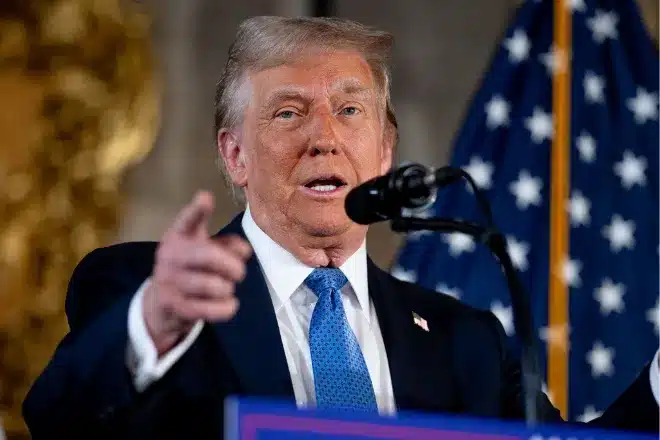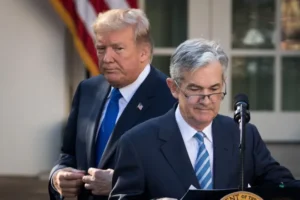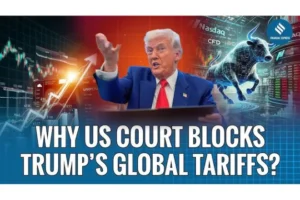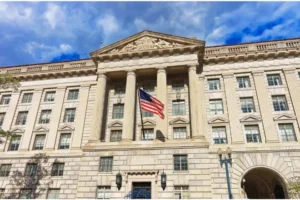President Trump's public criticism of Fed Chair Powell has raised concerns about potential political interference in monetary policy, with analysts arguing that removing Powell alone wouldn't guarantee desired rate cuts
Presidential Pressure and the Federal Reserve: A Complex Path to Policy Influence
President Donald Trump's sustained public criticism of Federal Reserve Chairman Jerome Powell has ignited concerns regarding potential presidential intervention in monetary policy. While the prospect of removing the central bank chief has been raised, a move fraught with legal ambiguity and historical precedent, analysts suggest that even such a drastic action may not guarantee the policy outcomes desired by the administration.
Economists contend that the simple dismissal of Powell would likely prove insufficient to secure the intended rate reductions. Paul Ashworth, Chief North America Economist at Capital Economics, articulated this view in a recent note, stating, "In all likelihood, however, firing Powell would just be the first step in dismantling the Fed’s independence. Should Trump insist on lowering interest rates, he'd have to dismiss the remaining six Fed Board Members, a move that would provoke a significant market downturn, causing the dollar to weaken and long-term interest rates to increase." Trump said
The structure of the Federal Open Market Committee (FOMC), which sets interest rate policy, further complicates the president's potential influence. While the Fed Chairman typically leads the FOMC, members retain the authority to elect an alternative leader. As JPMorgan’s Chief U.S. Economist, Michael Feroli, noted, "most of the power of the leadership stems from the historical deference" rather than solely from the official position. Deutsche Bank Senior Economist Peter Sidorov echoed this sentiment, emphasizing the potential for individual Fed members to resist perceived presidential overreach. " Sidorov pointed out that even though the Fed Chair wields considerable influence over the FOMC, policy decisions require a majority vote, meaning Powell's removal might result in other members resisting pressure to loosen monetary policy.
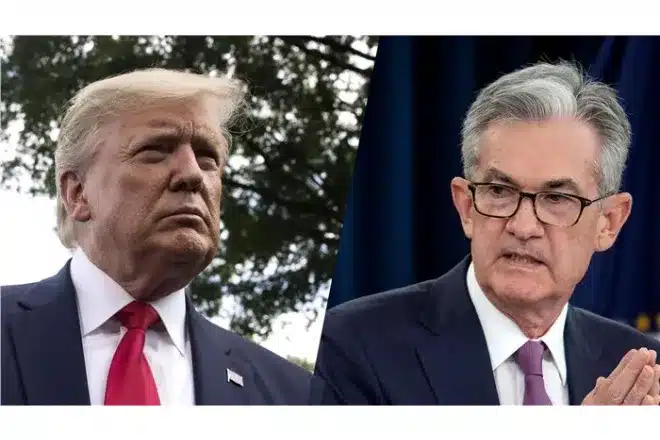
The recent escalation of presidential rhetoric, including disparaging remarks directed at Powell, has amplified market volatility. Furthermore, White House economic advisor Kevin Hassett's acknowledgment of discussions regarding Powell's removal has fueled investor uncertainty.
The legal basis for such a removal remains contested. Powell himself has expressed skepticism regarding the president’s authority in this matter. An upcoming Supreme Court appeal concerning the removal of board members from other federal entities may provide further legal clarity.
The combination of uncertainty surrounding the Fed and persistent trade tensions has eroded market confidence, causing a drop in U.S. stocks, bonds, and the dollar's value. Market participants express concern that any perceived compromise of the Fed's independence could exacerbate market instability and heighten inflationary pressures. "Feroli cautioned that any weakening of the Fed's independence would increase the potential for higher inflation, a prospect already fueled by tariffs and somewhat elevated inflation expectations.Despite the potential for adverse economic consequences, the administration's track record suggests a willingness to pursue its stated objectives, raising concerns about the future trajectory of monetary policy.
About H2T Finance
H2T Finance delivers real-time financial news, keeping you up to date with market movements, policies, and global economic events. As part of H2T Media Group, we are committed to providing accurate information and in-depth analysis, helping investors make quick, confident decisions in an ever-changing financial landscape.
For inquiries or personalized assistance, feel free to contact us:
📞 Phone: +84933.948.888
📧 Email: info@h2tmediagroup.com
📍 Address: 4/567 Tổ 10 Khu Phố Hòa Lân 1, Thuận An, Bình Dương, Vietnam
At H2T Finance, your success is our priority.
